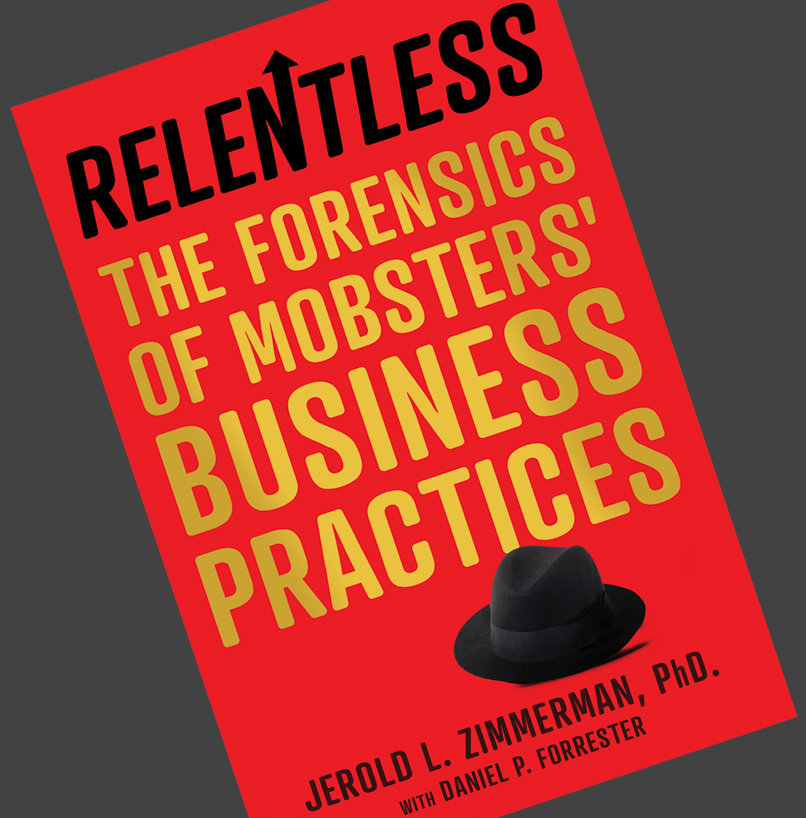Every day, iconic brands like J.C. Penny, Sears, Kodak, and Blockbuster vanish. As entire lawful industries are disrupted out of existence, how have some organized criminal syndicates endured for nearly a century – despite billions of dollars of law enforcement opposition and ruthless rivals dedicated to their demise?
In Relentless, Zimmerman and Forrester combine seventy-five years of Nobel Prize-winning economics research with insights from criminal prosecutors to examine how the Sinaloa Cartel, the American Mafia, the Hells Angels, the Crips, and the Bloods survive, and even thrive, whereas legal companies that play by the rules falter and often fail.
All successful leaders—both lawful and unlawful—must follow the same fundamental economic principles: assign tasks, measure outcomes, reward performance, and cultivate corporate culture. Successful criminal enterprises construct their “Four Pillars” to create high-performance teams with a long-term focus, enduring corporate cultures, and strong brands. They attract the “right” people while purging “vampires” – individuals that take more from, rather than contribute to, an organization.
Lawful managers cannot merely copy mobsters’ four pillars, but they can follow the underlying economic principles to construct relentless organizations.
Cite This Article
"Lessons Companies Should Learn From Mobsters’ Business Practices" History on the Net© 2000-2024, Salem Media.
July 27, 2024 <https://www.historyonthenet.com/lessons-companies-should-learn-from-mobsters-business-practices>
More Citation Information.






